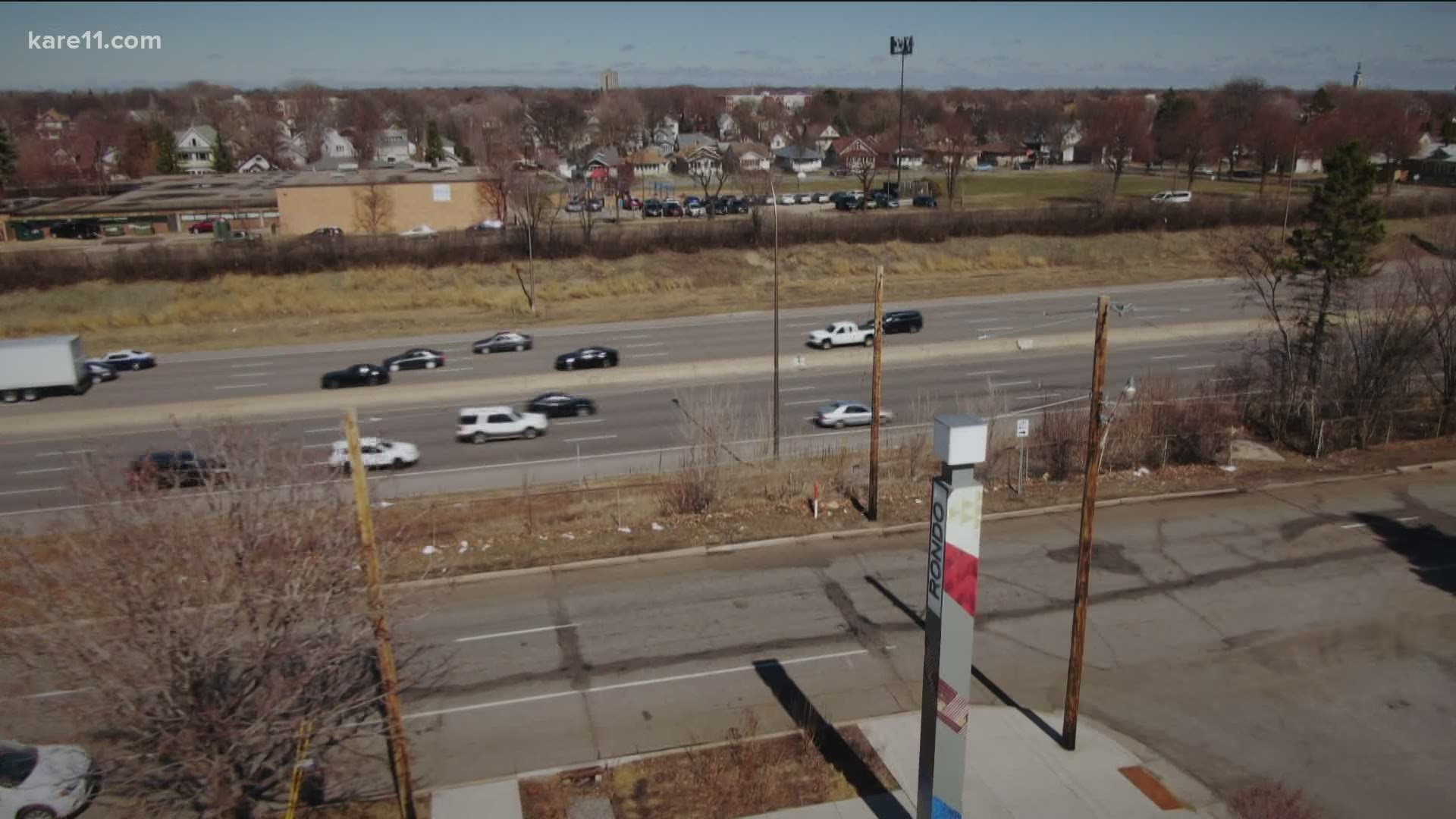ST PAUL, Minn. — A neighborhood destroyed by an interstate is a story that's not unique to St. Paul but one that bears repeating.
"It was a decision that was a part transportation decision because they wanted to connect downtown St. Paul to downtown Minneapolis but there was an underlying racism, involved in that decision," Marvin Roger Anderson said.
Anderson is the co-founder and chairman of Reconnect Rondo. The group is leading the effort to build a land bridge in the Rondo neighborhood.
Anderson reminisced about the old Rondo neighborhood; about the businesses that are no longer there, homes that no longer stand--his included.
"I grew up three blocks from here," he said. "My house is gone now of course, it was on the freeway."
The Rondo Commemorative Plaza off Concordia Avenue in St. Paul is a retrospective of what was lost when I-94 was built in the 1960's. However, Anderson said six years ago, it was a place of a new beginning.
"At the healing ceremony that was held here, the mayor of the city of St. Paul, the commissioner of transportation came here and they both made apologies for the role that their agencies played in routing I-94 through the Rondo community," Anderson said.
Apologies, while not enough on their own, they did spark this idea of a land bridge. The proposed bridge could be as big as 22 acres, and it would span from Grotto Street to Chatsworth Street with all of it stretching over I-94.
"The creation of an African American cultural and enterprise district-- connected by a land bridge really goes a very far way not only in righting the wrongs, in the decision of I-94, not only creating and generating the excitement within the community of rondo, but most importantly it lays a foundation for our youth to have a future that three years ago they couldn't dream," Anderson added.
As Anderson testified today in front of the Minnesota House Transportation finance and policy committee about this very project, the dream is slowly starting to materialize in the form of HF 2169.
"This bill is long overdue and provides an opportunity to reconciliation and healing," DFL Representative Ruth Richardson said in the virtual hearing. "In addition to righting historical wrongs, opportunity to benefit public health, to reduce air and noise pollution, and recovering taxable land."
"We're looking at this as an investment and recreation of not just arts, park space but recreating a section of the city for jobs, environment, culture, history and restorative justice," Anderson said.
Thursday's hearing from the Minnesota House was an informational hearing. House File 2169 would set aside 6.2 million dollars for the project.
Reconnect Rondo said public input is the next big step and they'll be working on outreach to help make this project successful.

